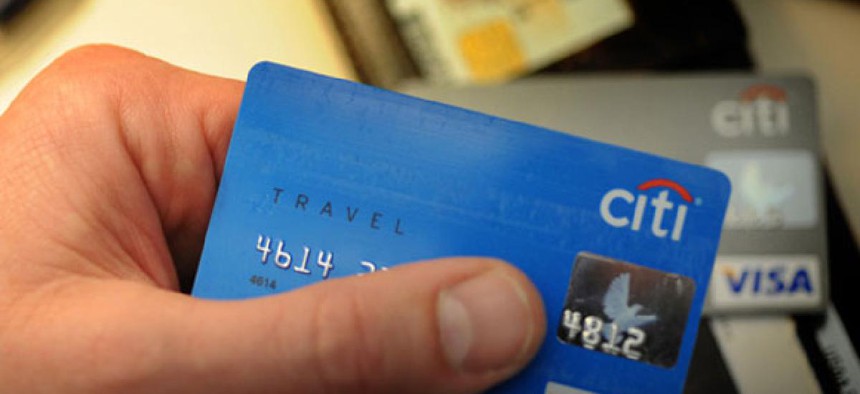
United States Air Force
Forest Service Employees Rack Up Improper Travel Card Charges
Most Agriculture cardholders comply with travel policies, , IG finds.
Four Forest Service employees racked up $13,700 in improper charges on government travel cards in fiscal 2011, according to a new report from the Agriculture Department’s inspector general.
The IG traced back 500 travel card transactions made by four employees that could not be attributed to official travel, including purchases at restaurants, gas stations, grocery stores and cash withdrawals at ATMs. Two of the four employees’ accounts were delinquent by a total of more than $3,000.
Federal employees must complete online training outlining travel card policies, and also must sign an agreement stating they understand these policies. The government reimburses travelers for authorized expenses and employees are responsible for paying their account balances. Employees cannot use their travel cards for personal use or gain, and USDA does not allow cardholders to carry delinquent balances.
Three of the four employees no longer work at the Forest Service. The remaining individual is still an employee and is awaiting disciplinary action, according to the agency. The accounts have been paid in full for two of the employees involved.
The watchdog found a relatively low level overall of travel card misuse at the Agriculture agencies included in the study. The IG report focused on 1.1 million transactions worth $134 million from six agencies: the Agriculture Research Service, Animal and Plant Health Inspection Service, Farm Service Agency, Forest Service, Natural Resources Conservation Service and the Office of the Chief Information Officer. The Forest Service had more than 675,000 travel card transactions in fiscal 2011, the most of the agencies the IG looked at. Of the 1.1 million transactions included in the study, the IG identified 1,131 potentially inappropriate transactions. From the 1,131 transactions, the watchdog then selected statistical samples for further review.
Agriculture does not yet have an automated system that links employee travel dates with card transactions. “Although USDA has automated checks and fraud detection tools for other types of misuse, for example transactions with inappropriate vendors, it is not currently able to automatically reconcile travel card use with approved travel dates,” the watchdog said. Managers must manually compare the information to perform reviews. “With more than 675,000 travel card transactions to monitor each year, the volume is overwhelming for the Forest Service travel management personnel,” the report said.
The IG recommended integrating the data from the department’s travel planning system with the bank’s transaction system to improve oversight of Agriculture’s travel card program. The department’s chief financial officer currently is in the process of contracting for a new travel system, and said it would look at whether integrating the data into an automated system was possible. But the office also told the IG that any changes requiring funding are not feasible right now. The IG said having supervisors manually review their employees’ travel transactions “would be a less costly, but still effective, alternative to developing or altering an automated system.”
The Forest Service and USDA generally agreed with the IG’s findings. The Forest Service, which has an existing process in place to identify potential travel card misuse and pursue disciplinary action, said it has been more “attentive” to the issue in recent months. “The travel card program staff and the employee relations community are working closely to provide more information and educating the community on travel card misuse,” said Thomas Tidwell, head of the Forest Service in response to the IG report.







